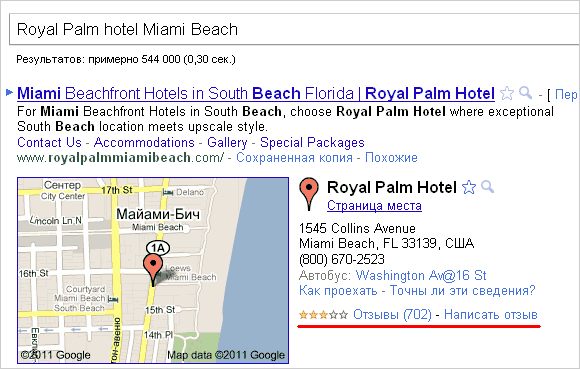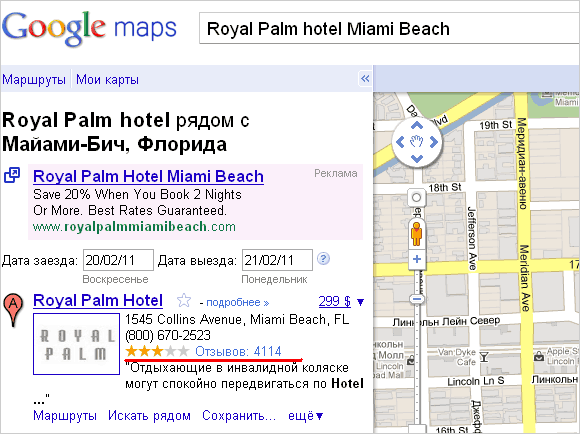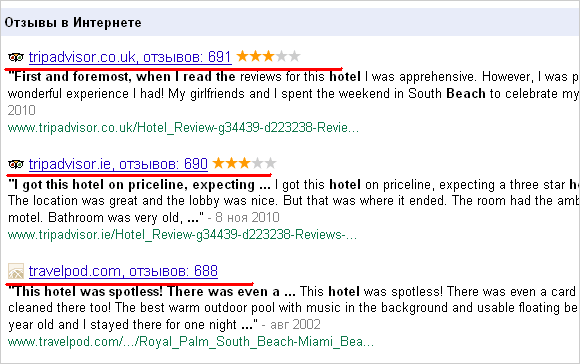The “butting” of TripAdvisor and Google due to hotel reviews continues
 Hotel reviews have become the reason for the conflict between Google and TripAdvisor, which has been going on for more than a month, and each side has enough supporters and opponents. Steve King, an expert at SIM Partners, has figured out the essence of discord.
Hotel reviews have become the reason for the conflict between Google and TripAdvisor, which has been going on for more than a month, and each side has enough supporters and opponents. Steve King, an expert at SIM Partners, has figured out the essence of discord.TripAdvisor for a long time remained, if not the only, then without a doubt, the most authoritative resource providing travelers with objective information about the conditions of accommodation and the quality of services in hotels all over the world. Every day TripAdvisor pages are filled with hundreds of hotel reviews. For many, these reviews, rather than photos from the official websites of hotels, were the decisive factor that influenced the choice. It is not surprising, therefore, that over time, hotel owners began to show concern with a large number of negative reviews, for which, as they believed, there was no reason. Their fears to one degree or another were confirmed - being an effective tool to influence consumer choice, TripAdvisor eventually turned into a competitive weapon: competitors placed negative feedback on each other. The emergence of other influential resources was supposed to return to the independent reviews the lost confidence, and the hotels - the ability to position themselves in the market in accordance with the actual level.
However, with the advent of Google Places, the situation has become more complicated: at the moment TripAdvisor is trying to block the posting of reviews from its pages in Google Places. Among the main reasons for such actions are selectivity in posting reviews and an attempt to manipulate users' opinions in order to gain a competitive advantage from Google. Google objects, claiming that its search subsystem Google Places only simplifies the search procedure for the user. Now on Google Places you can still find TripAdvisor reviews, Google only sends users who want to read such reviews to other sites. In some cases, reviews of TripAdvisor users are placed on Google not directly, but through regional sites in the UK, India and other countries. In other cases, Google places content of the second generation, that is, material from sites that link to their pages links to original reviews from TripAdvisor, CitySearch and Yelp - for example, Epictrip, Travel.USnews.com and Residio. Note that, historically, Google has posted on its pages original hotel reviews from sites, thus creating unique content, and excluding the possibility of duplicating reviews. The use of aggregator sites is an obvious rejection of this practice.
')
Consider the implications of the method used by Google for users and hoteliers. First of all, there is the possibility of a biased increase / decrease in the rating of a hotel, when the same review posted on different resources, as well as links to it, are considered as separate reviews. So, a simple search for the Royal Palm Hotel in Miami through Google.com gives out 702 user reviews:

while searching for the same hotel through Google Maps shows 4114 reviews:

If you look at the reviews in detail:

it can be noted that they are taken from the British and Irish TripAdvisor sites, as well as from Travelpod, which places on its pages reviews of TripAdvisor users. Thus, one hotel review posted by a TripAdvisor user can theoretically be counted at least three times, thereby giving a multiple increase in the total number of reviews and increasing the rating in Google Maps. For Google's ranking, the total number of reviews is important, and hoteliers simply achieve hotel rating upgrades by posting reviews on as many websites as possible to publish such information. Hotels can post links to their own sites, and thus also increase their ranking in Google. In any case, it is obvious that Google’s algorithm for calculating hotel ratings makes placing hotel reviews advantageous for hoteliers, and, regardless of the quality of service, it’s profitable for hotels to spend money and effort on it.
Modern travelers rarely trust one site, and try to view several resources before deciding in favor of a hotel, but even such tactics do not guarantee their objectivity.
Source: blog.oktogo.ru with reference to toons.com
Source: https://habr.com/ru/post/113440/
All Articles